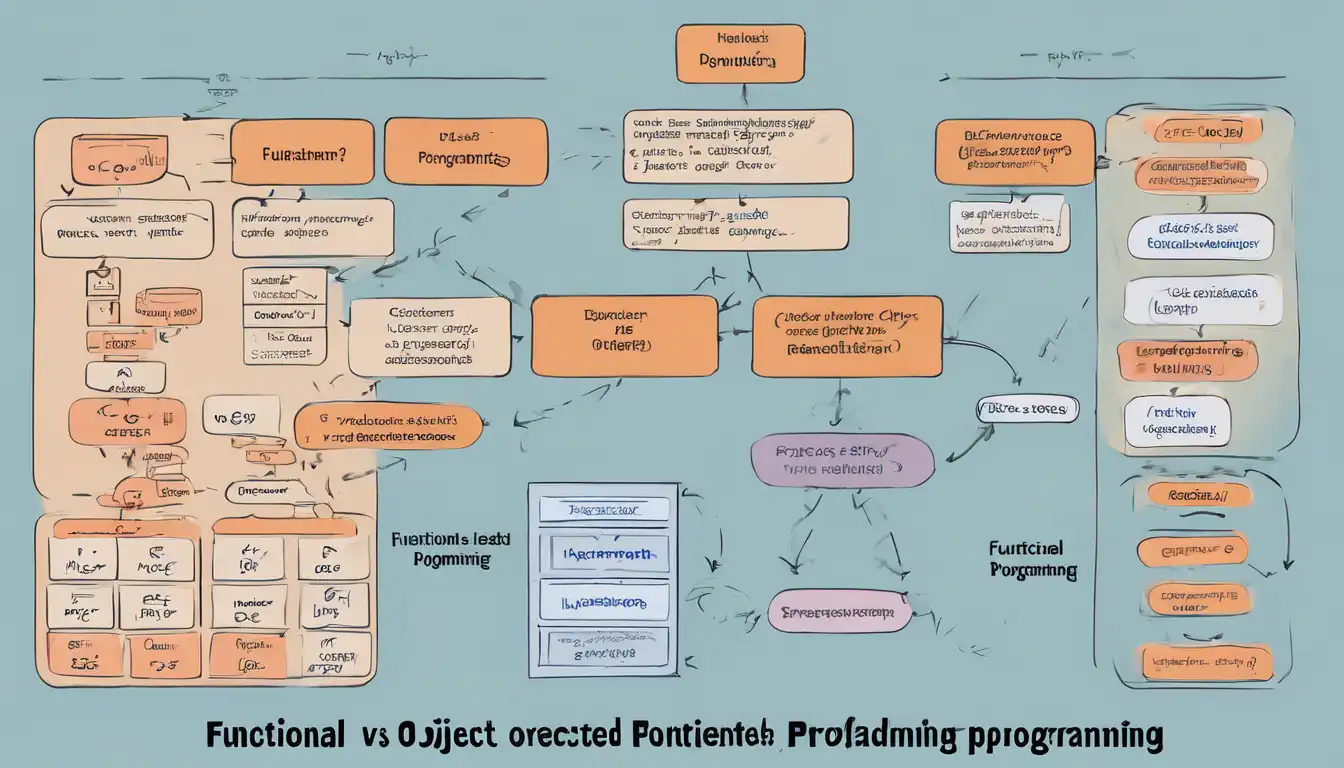Introduction to Programming Paradigms
In the world of software development, understanding the differences between functional programming (FP) and object-oriented programming (OOP) is crucial for choosing the right approach for your project. Both paradigms offer unique advantages and challenges, making them suitable for different types of applications.
What is Functional Programming?
Functional programming is a paradigm that treats computation as the evaluation of mathematical functions and avoids changing-state and mutable data. It emphasizes the application of functions, in contrast to the imperative programming style, which emphasizes changes in state.
- Immutability: Data is immutable, meaning it cannot be changed after it's created.
- First-class functions: Functions are treated as first-class citizens, allowing them to be passed as arguments to other functions.
- Pure functions: Functions have no side effects and return the same output for the same input.
What is Object-Oriented Programming?
Object-oriented programming is a paradigm based on the concept of "objects", which can contain data and code: data in the form of fields, and code, in the form of procedures. OOP focuses on the objects that developers want to manipulate rather than the logic required to manipulate them.
- Encapsulation: Bundling of data with the methods that operate on that data.
- Inheritance: A mechanism where one class acquires the properties and behaviors of another class.
- Polymorphism: The ability of an object to take on many forms.
Comparing Functional and Object-Oriented Programming
When deciding between FP and OOP, consider the nature of your project. FP is often favored for data processing tasks and applications where concurrency is important. OOP, on the other hand, is well-suited for large, complex systems that are actively developed and maintained.
Performance Considerations
Functional programming can offer performance benefits in certain scenarios due to its emphasis on immutability and pure functions, which can make it easier to parallelize operations. However, OOP can be more intuitive for modeling real-world entities and relationships.
Scalability and Maintenance
OOP's modular nature makes it highly scalable and easier to maintain for large teams. FP's declarative style can lead to more concise and readable code, but it may require a steeper learning curve for those unfamiliar with the paradigm.
Conclusion
Both functional and object-oriented programming have their place in software development. The choice between them depends on the specific requirements of your project, your team's expertise, and the problem domain. By understanding the strengths and weaknesses of each paradigm, you can make an informed decision that best suits your needs.
For more insights into programming paradigms, check out our articles on software development and programming best practices.
